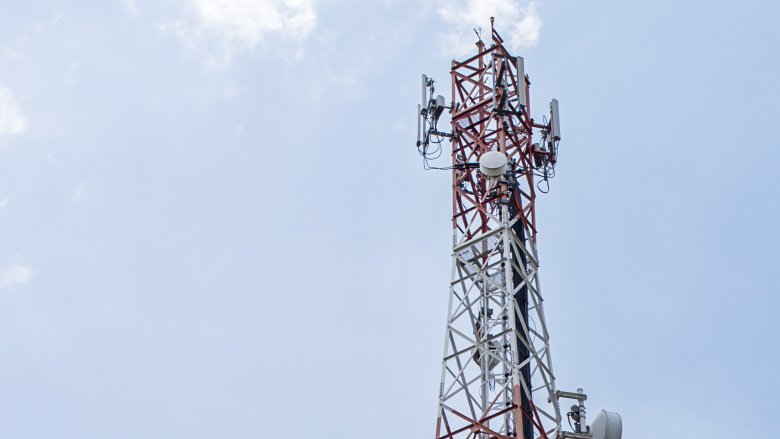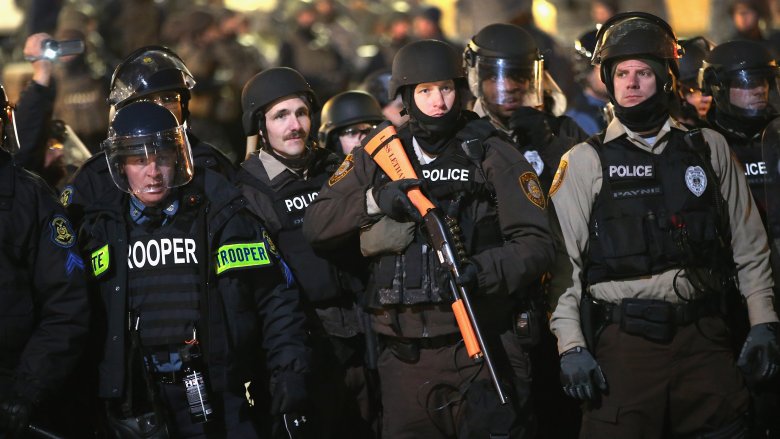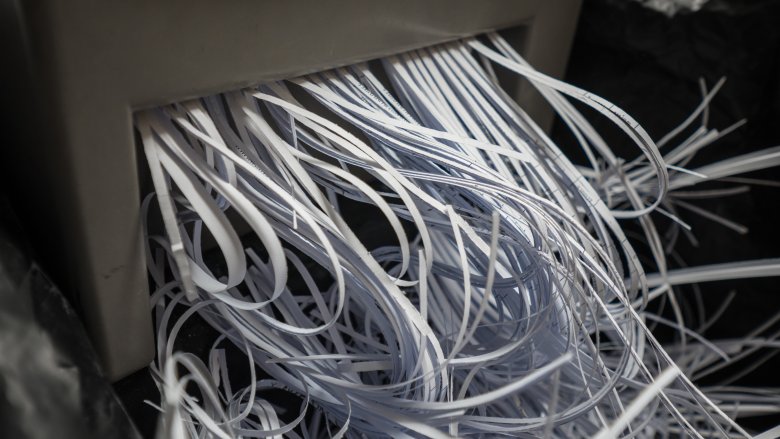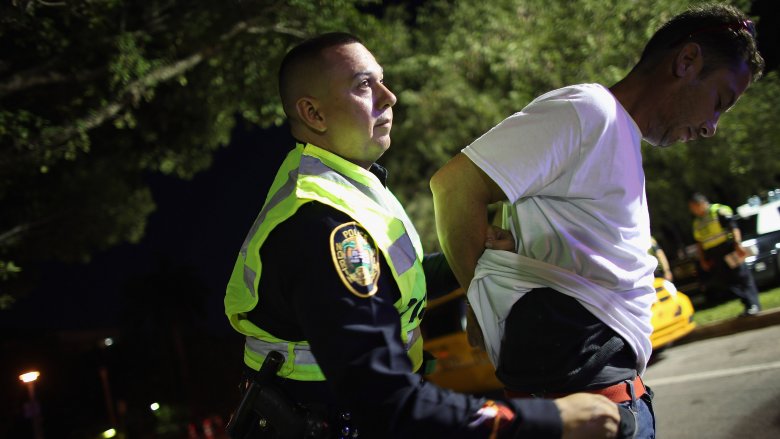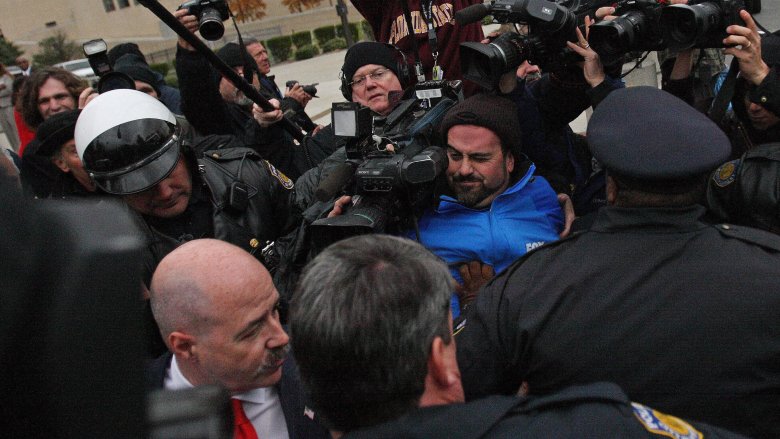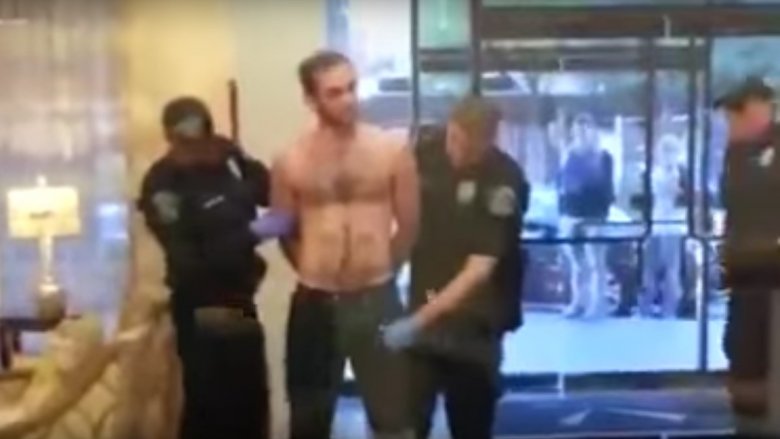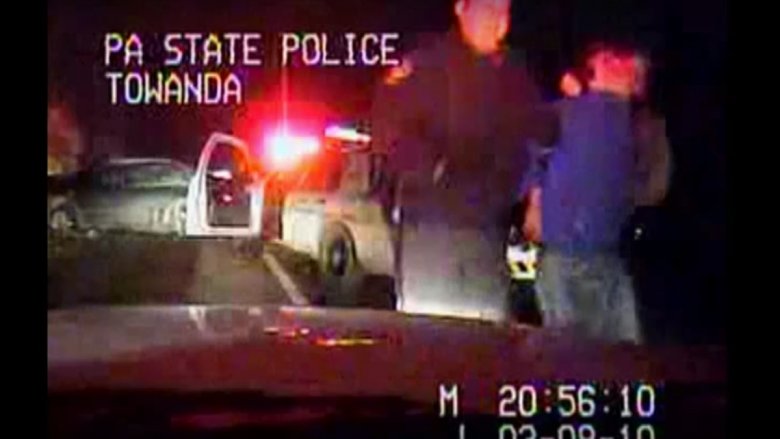Secrets The Police Don't Want You To Know
The role of the police is to serve and protect—and, most of the time, they do a pretty good job. Other times ... not so much. From surveillance that would make the NSA jealous to mistaking genitalia for deadly weapons, law enforcement is anything but perfect.
The cops are secretly tracking you
Everyone knows the National Security Agency (NSA) gets off by listening to your phone calls, but did you realize some cops are monitoring you, too?
Remember how much work it took Jimmy McNulty and crew in HBO's The Wire to get a wiretap authorized? Heck, it took almost the entire first season! The first decade of the 2000s has come and gone, however, and the second decade has ushered in a new tool for privacy invasion and surveillance, officially called International Mobile Subscriber Identity catchers, but more commonly known as "Stingrays." Cops in 2014 were rolling out these mobile data vacuums all over the United States. Acting as cell-phone towers, one Stingray could effectively force every cell phone in the area to connect to it, giving the police an unprecedented amount of information, from call logs to your exact location, all without—and this is the best part—a warrant.
"How were cops getting away with this?" you might ask. Well, according to the Associated Press, it was all thanks to the federal government, specifically the Obama administration, which secretly advised police forces across the country not to disclose information regarding their surveillance technology and penchant for stealing everyone's cell phone metadata. The federal government also made a habit of interfering with routine cases pertaining to public records, as well as charges against the use of the technology. But we're sure it's all for your own good. You know ... "national security" and everything.
So the next time you're feeling lonely, just remember: Big Brother is watching.
The police force is increasingly militarized
Many local police forces in the United States have been gifted with enough overseas military equipment to take over a small country, and often without even a word to the public.
In 2014, The New York Times reported that the Obama administration was handing out unused military equipment to local police forces left and right. We're talking about tens of thousands of military-grade machine guns, camouflage, night vision gear, drones, and (everyone's favorite toy) armored vehicles. This is stuff that was meant for use in overseas warfare in Iraq and Afghanistan, not some small suburban town in Wisconsin.
Naturally, these lucky police forces have displayed a fondness for playing with their new toys. SWAT teams are deployed tens of thousands of times per year, and often for not-particularly-SWAT-worthy exercises, such as night club liquor inspections and raiding barbershops for barbering without a license. Towns with virtually nonexistent crime rates have been fully stocked with mine-resistant vehicles and M16s, creating an atmosphere a far cry from the good ol' days of chatting up your neighborhood watchman.
Next time the SWAT police come a-knockin' at your local barbershop, remember, those are the flash-bang grenades of freedom blowin' up your spot!
Many complaints against police officers are destroyed
Many police look out for their own as a point of pride, which means some will go pretty far to make sure your official complaint ends up in the shredder.
After some friendly neighborhood hackers gained access to the largest police union's website in 2016, they found some particularly interesting information, which law enforcement definitely doesn't want you to know. In some places, guarantees are in place that keep complaints against officers secret. Better yet, sometimes, they're even destroyed. The Guardian performed its own analysis of Fraternal Order of Police documents, finding that more than a third featured clauses that allowed for "the destruction of records of civilian complaints, departmental investigations, or disciplinary actions after a negotiated period of time." In some cases, the destruction of such documents was even mandated. Furthermore, 30 percent of the leaked documents examined by The Guardian barred public access to past records of complaints and the like. Scared yet?
You have more rights than you probably realize
Many Americans only have the faintest knowledge of their rights regarding encounters with law enforcement, which only affords the police more power.
Let's start with the constitution, shall we, specifically the Fourth Amendment, which states: "The right of the people to be secure in their persons, houses, papers, and effects, against unreasonable searches and seizures, shall not be violated, and no Warrants shall issue, but upon probable cause, supported by Oath or affirmation, and particularly describing the place to be searched, and the persons or things to be seized." In layman's terms, it says the police can't go through your stuff, though this right is illegally violated, to some degree, on a daily basis. You are protected by this amendment even if you're not a U.S. citizen.
It's also important to know that a police request is not an order, and you have every right to ask for clarification in this regard. For example, you don't have to roll down your window fully unless ordered. You may legally film police officers, though many certainly would prefer you didn't. You don't have to answer incriminating questions, nor do you have to consent to a search without a warrant. If you politely refuse a search and the cop claims he will call a K-9 unit, you have every right to ask: "Am I being detained, or am I free to go?" All of these examples are merely the tip of the iceberg, so it never hurts to brush up on your constitutional and state-mandated rights.
At the same time, remember: a little class and respect when dealing with a cop (or with anyone, for that matter) can go a long way.
Police corruption runs deep
Not all cops are bad. Plenty of straight shooters out there effectively keep our streets safe while legitimately serving and protecting us. However, a few bad apples can ruin the bunch.
The city of Camden, New Jersey, paid $3.5 million in 2013 to victims of widespread police corruption by the Camden Police Department, with violations including planting evidence, fabricating evidence, fabricating reports, and perjury. This is only one example of many not-so-high-profile cases. Jennifer Gonnerman's book Life on the Outside: The Prison Odyssey of Elaine Bartlett details the horrible consequences of the Rockefeller drug laws and illegal practices they promoted. In Bartlett's case, she was coaxed by a confidential informant into carrying cocaine from New York City to Albany, where she merely delivered the product to undercover cops. Everyone involved in the deal, from the one who planted the idea in her mind to the undercover cops she handed it to, was in on it from the beginning, landing Bartlett in jail for an extensive length of time, while illustrating the ease with which cops could meet arbitrary quotas.
Police corruption across the country has been well documented throughout the decades, yet it still persists, thanks in part to what research has found to be "the conspiracy of silence, authoritarian supervision, and police discretion." Even if individual cops follow the rules, that doesn't mean their bosses do.
They make mistakes all the time
Once, in England, some friendly cops parked a man's car outside their station before taking him to the hospital. They failed to properly communicate that to their colleagues, who called the bomb squad and blew the poor civilian's car to smithereens. A video went viral in 2016, when a police officer accidentally mistook a man's penis for a gun, but hey, who hasn't?
Not all mistakes are funny, though, and some police mistakes infringe upon individual rights. For example, police commonly make arrests without probable cause, or forget to read out the Miranda warning. Police officers often exhibit misconduct when making arrests, most notably when using an unacceptable amount of force. Sometimes, the process of gathering evidence can result in misconduct charges, making the evidence irrelevant in court. In fact, it's expected that police officers will make mistakes, and they're protected by the law, according to the Supreme Court case Heien v. North Carolina. That makes it all the more important that you don't make a mistake the next time you're rappin' to the fuzz.
Police brutality is a systemic problem
American law enforcement just can't seem to come to grips with its penchant for beating the crap out of people. Rodney King was perhaps the original high-profile case of police brutality back in 1991. Since then, not much has changed, and many cases of police brutality are racially charged, with the likes of Vanity Fair questioning how James Eagan Holmes can shoot up a movie theater in Aurora, Colorado, killing 12 and wounding 70, but be apprehended with barely a scratch on him, "while a black father of four, Rumain Brisbon, can be shot for holding a vial of pills mistaken for a weapon, another can be shot for handling a pellet gun at Walmart (John Crawford, aged 22), and a 12-year-old black child can have his future erased for playing with a BB gun, shot by an officer who may not have been aware the boy was holding a toy gun."
Not all cases of police brutality are racially charged, of course. In the rural, middle-of-nowhere town of Towanda, Pennsylvania, in Bradford County, Robert Leone was beat to a pulp by state troopers after leading them on a low-speed chase. One dashboard camera shows the officers using what they called "appropriate and necessary" force on a sedated individual who clearly posed little to no threat, with the abuse continuing after the arrest was made and, allegedly, in the hospital. This particular incident illustrates that police brutality is not relegated to urban centers or environments with high racial tension, but can also take place in small-town America, by state troopers – all of whom were cleared of wrongdoing by federal courts – obviously incapable of properly handling low-speed chases.

